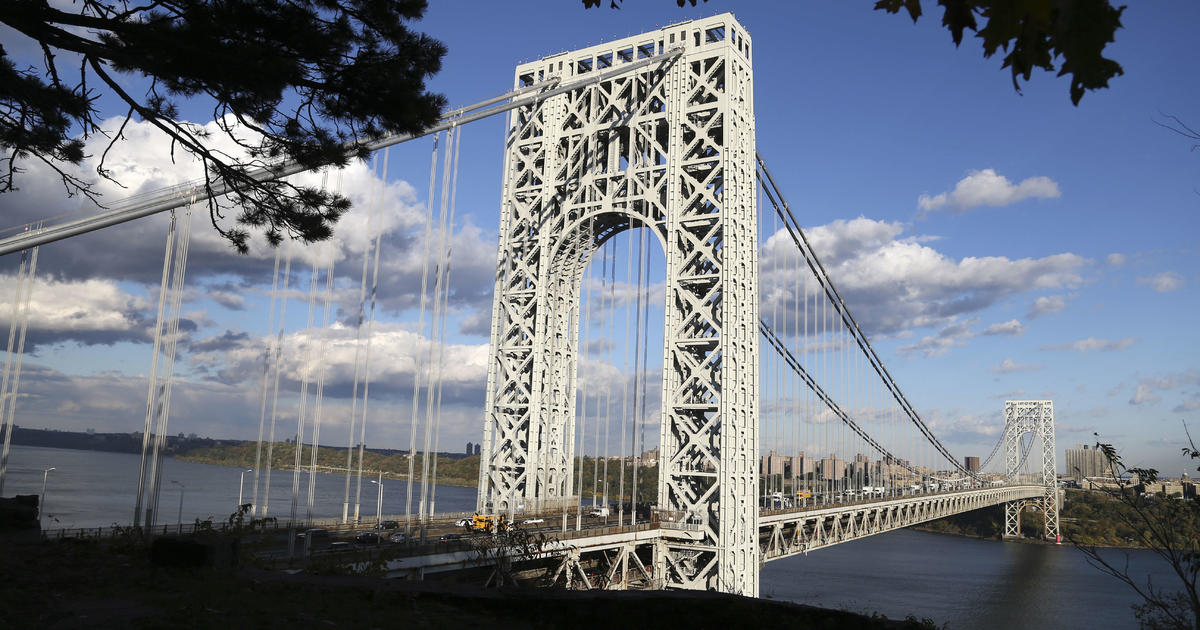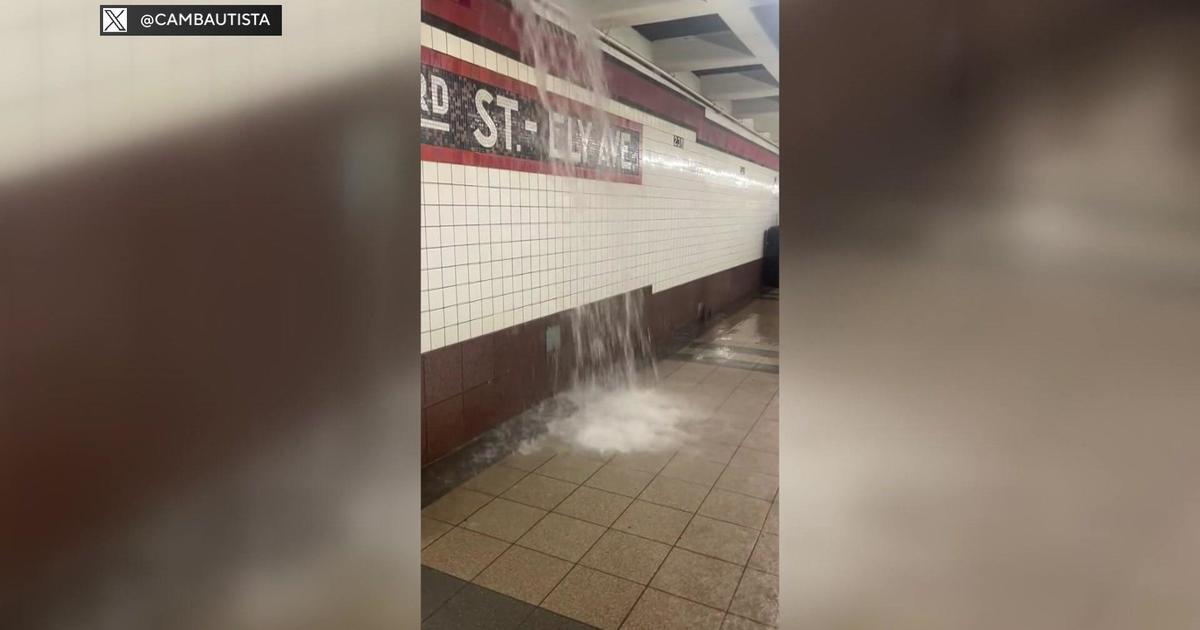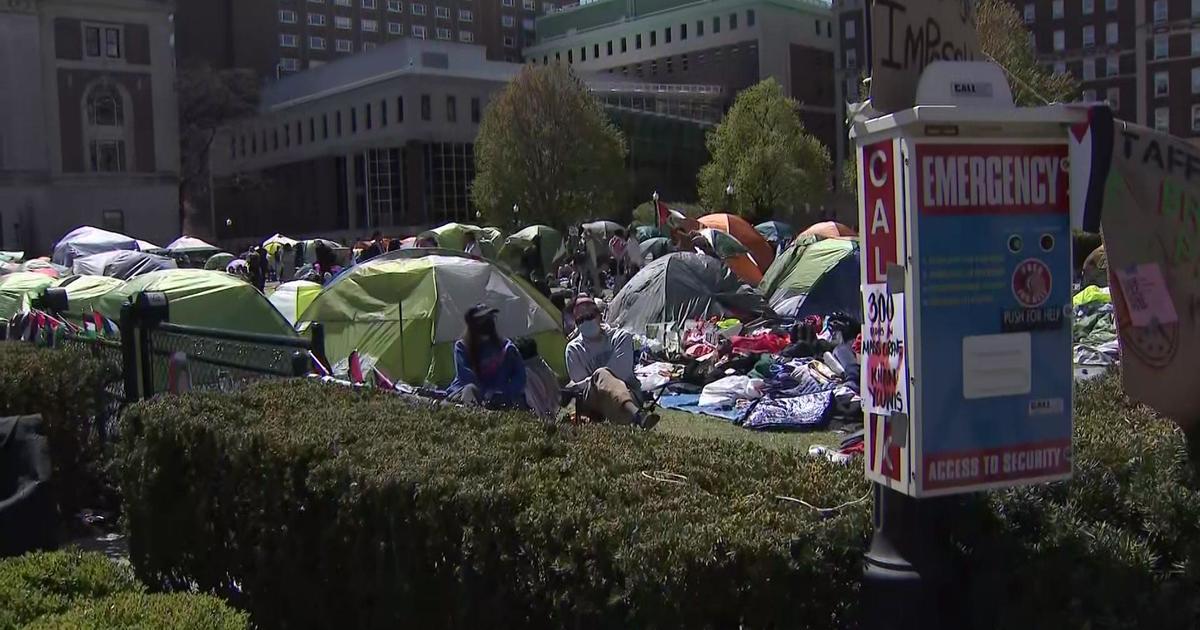NJ TRANSIT, Union Reach Tentative Deal In Labor Dispute
NEWARK, N.J. (CBSNewYork) -- NJ TRANSIT and the union representing its workers reached a tentative deal late Friday, averting the threat of a strike.
Union officials announced the tentative deal just before 7 p.m. Friday at the Hilton Penn Station Newark Hotel.
The agreement still must be ratified, but should provide confidence for workers and commuters who use NJ TRANSIT, Gov. Chris Christie said late Friday.
"It's good news on many levels – first, we avert a strike and the damage it would do to our economy, and we've reached an agreement that is longer than the presidential executive board recommendation, covering not only the period since 2011 when the last contract expired, but now through the end of 2019," Christie said.
As CBS2's Lou Young reported, the tense negotiations ended with smiles and congratulations, but little in the way of information.
Christie never entered the talks directly. But he weighed in from NJ TRANSIT headquarters two blocks from the hotel, after the agreement was reached.
"I'm very happy that we resolved this agreement before our transit system and our economy were disrupted by the threat of a strike," Christie said.
Young asked Christie if he knew how much New Jersey taxpayers would have to pay for the wage hikes and increases in health insurance premium payments for NJ TRANSIT workers.
"I do, and I'm not telling you," Christie replied to Young's question, "because the unions and I have made an agreement that the financial specifics of this deal will not be put out by the government until they've had an opportunity to present it to their members."
The unions also kept quiet about the details. Health insurance costs are expected to rise along with wages, and Young asked if it was something union members would go for.
"We'll see – I'm sure they will," said John Lacey of the International Association of Machinists.
At one point, Young reported, the estimated coast of the union's original proposal was $183 million -- a sum that Christie had criticized.
Christie further said there is no immediate NJ TRANSIT fare hike needed to pay for the terms of the contract.
The 4,000 union workers for NJ TRANSIT trains have been without a contract since 2011. The primary issues were money and health care costs, as well as the length of a contract "right now."
When asked what "right now" meant, he said NJ TRANSIT fares are not going up in the current budget, which means train fares will not go up through June 2017.
Other officials were likewise pleased with the resolution.
"I want to congratulate the negotiators representing NJ Transit and the rail workers on crafting a deal on a new contract. A work stoppage would have crippled the region's economy and left hundreds of thousands of commuters victim to a situation not of their making," New Jersey Senate President Steve Sweeney said in a released statement.
Riders were simply happy the trains would keep rolling.
"No more strike? Oh, that's so good!" one woman said.
"I'm happy about it," another rider said, "because it would've been chaos on Monday."
Without a deal, a strike would have gone ahead just after midnight Sunday morning. But management had been optimistic about the possibility of reaching an agreement without having to go into the weekend.
"There's no reason why this shouldn't close today. It should close today," NJ TRANSIT negotiator Gary Dellaverson said before the deal was announced. "Everything that we have to talk about we have talked through, we know exactly what the differences are between us. It's now time to close those differences reach an agreement, lift the threat of a strike off of the heads of our customers, and move on."
WEB EXTRA: How To Get Around If NJ TRANSIT Shuts Down
The deal was a 180-degree turn from the state of affairs when talks wrapped up on Thursday, union leaders stormed out of the meeting fuming, after NJ TRANSIT issued a letter saying that if they went on strike, all rail positions would have been suspended, all workers on sick leave would lose their benefits and that all employees would lose their health insurance.
"It is apparent that NJ TRANSIT's notice to the coalition members represents retaliatory action and harassment of the coalition members," union representative Steve Burkert said on Thursday.
NJ TRANSIT said the notice was required by federal law.
Rail workers often earn a healthy six-figure salary with overtime. A conductor earns $102,000 on average and $184,530 with overtime, a locomotive engineer $96,486 on average and $174,778 with overtime, a track foreman $74,955 on average and $146,665 with overtime, and a yard master with $103,612 on average and $149,307 with overtime.
The unions were seeking an 18.4 percent pay raise over a period of seven years, as well as pay retroactive to 2011. They also wanted health insurance costs capped at 2.5 percent of base pay.
NJ TRANSIT issued the $183 million estimate for that plan -- for just the first two years. The agency has instead proposed a 10.9 percent raise over seven years, with employees contributing 20 percent of their base salaries toward health insurance.
Martin Robinson, a former negotiator for NJ TRANSIT who has been through such talks before, told CBS2 he had also expected a resolution because the alternative would be so disruptive.
"This should be settled and it probably will be settled, because the risk of a strike far outweighs the benefits of whatever can come out of future negotiations after a strike," Robinson said.
He told Young he blames Gov. Christie for the situation at NJ TRANSIT now.
About 105,000 commuters rely on NJ TRANSIT daily, and many had been worried -- particularly essential service workers. Some Manhattan hospitals had even said they were ready to put their doctors and nurses up.
"If this situation calls for that, we're capable of doing that," said Kevin Chason, director of emergency management for Mount Sinai Hospital.
"We'll be making provisions with emergency lodging at our facilities -- either in available patient areas or on air mattresses or cots," said Brad Gair, vice president of emergency management for NYU Langone Medical Center.
Chris Christie of Clarkstown – not the governor and no relation to him – said he endured the Long Island Rail Road strike when he lived in New York in 1987, and he didn't want to do it again.
"It's not fun," he said. "We had to drive in, and it was just chaos and trying to find parking in the city. It was just crazy."
That strike lasted a total of 11 days.
In 1983, NJ TRANSIT struck for a full month.



